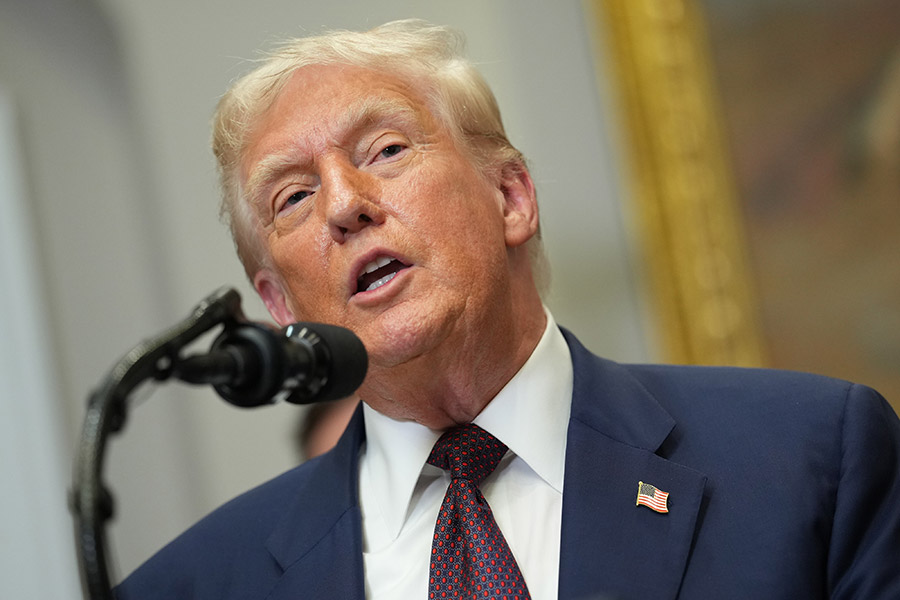The Exchequer looks on course for another year of bumper corporation tax receipts, despite threats of tariffs from the US, writes Sarah McGuinness.
Latest Government figures show that the amount of tax collected from multinational firms located here was €1.2bn last month – a jump of €900m on July 2024.
It is understood that a large, one-off payment brought about the increase.
July’s taking brings the total corporate tax amount collected so far this year to €14.3bn – which is €1.8bn ahead of the same period last year.
US President Donald Trump this week namechecked Ireland as he pledged to introduce tariffs of up to 250% on pharmaceutical and semi-conductor imports.
But senior Government sources last night played down fears that the White House may use our strong corporation tax against Ireland, saying that they believe the framework agreement between the EU and US “gives as much protection as could be hoped for”.
However, they also said that the jump in corporation tax revenues highlights the “highly volatile” nature of the income stream.
The Government has taken in €58bn in taxes so far this year, up by €5.6bn on the same period last year.
When once-off tax revenues of €1.7bn arising from the Apple tax ruling are excluded, “underlying” tax revenues stood at €56.2bn, a €3.9bn increase on last year.
The increase in tax receipts is fuelled by rising corporation tax revenues. In a statement yesterday evening, the Department of Finance said that “July is not ordinarily a significant month for corporation tax”.
Nonetheless, receipts of €1.2bn were collected last month, “a sharp increase of €0.9bn on July last year, underlining the exceptional month-to-month volatility in this highly concentrated revenue stream”.
Tax revenues across the board saw increases last month and remain ahead of 2024 levels.
Income tax receipts rose by €100m year-on-year to €2.9bn in July.
Non-tax revenue to the end of July was €2.3bn, up by €1.9bn on the same period last year, largely driven by transfers to the Exchequer of around €14bn from the Apple tax fund.
Finance Minister Paschal Donohoe said tax revenues are broadly “where we expected to be at this point in the year”.
However, he added that the country should not take record corporation tax revenues as a given in recent years, “particularly in the context of a deeply uncertain international trading environment”.
The latest Exchequer numbers came as Mr Trump announced details of a new Apple pledge to invest $100bn (€85bn) in US manufacturing, which will raise concerns about the firm’s Irish operations and the level of investment it is planning here.
The news came less than 48 hours after Mr Trump threatened on Monday to introduce tariffs of up to 250% on pharmaceutical imports and on semiconductors “within the next week or so”.
This was despite the European Union saying last week that it was under the impression that pharma would be included in the agreement it reached with the White House, which will see additional tariffs of 15% imposed on exports to the US.
“We’ll be putting an initially small tariff on pharmaceuticals, but in one year, one-and-a-half years maximum, it’s going to go to 150% and then it’s going to go to 250% because we want pharmaceuticals made in our country,” Mr Trump said on Monday.

“They [pharmaceutical companies] make a fortune with pharmaceuticals, and they make in China and Ireland and everything else.
“This is a, you know, this is a separate class than the 15% tariffs on sort of everything.”
A top Government source dismissed concerns that July’s tax revenues will invoke a strong reaction from Washington.
“The feeling is that the deal agreed between the US and EU gives as much protection as could be hoped for. I don’t think the latest Exchequer returns change that,” they said.











